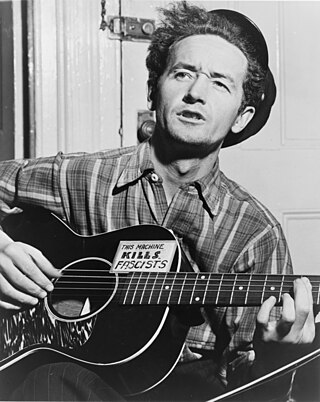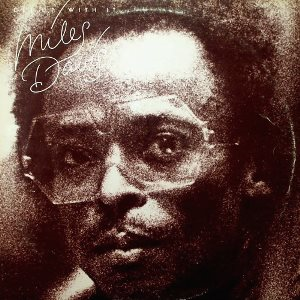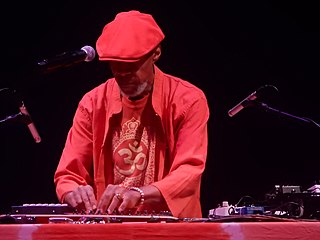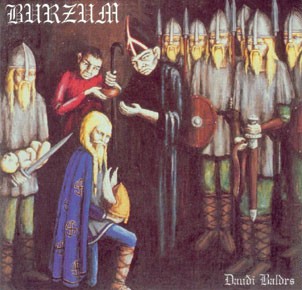
Portland is a port city in the Pacific Northwest and the most populous city in the U.S. state of Oregon. Situated in the northwestern area of the state at the confluence of the Willamette and Columbia rivers, Portland is the county seat of Multnomah County, the most populous county in Oregon. As of 2020, Portland had a population of 652,503, making it the 26th-most populated city in the United States, the sixth-most populous on the West Coast, and the second-most populous in the Pacific Northwest, after Seattle. Approximately 2.5 million people live in the Portland–Vancouver–Hillsboro, OR–WA metropolitan statistical area, making it the 25th most populous in the United States. About half of Oregon's population resides within the Portland metropolitan area.
Wendy Carlos is an American musician and composer best known for her electronic music and film scores.
Ambient music is a genre of music that emphasizes tone and atmosphere over traditional musical structure or rhythm. It may lack net composition, beat, or structured melody. It uses textural layers of sound that can reward both passive and active listening and encourage a sense of calm or contemplation. The genre is said to evoke an "atmospheric", "visual", or "unobtrusive" quality. Nature soundscapes may be included, and the sounds of acoustic instruments such as the piano, strings and flute may be emulated through a synthesizer.

The music of Oregon reflects the diverse array of styles present in the music of the United States, from Native American music to the contemporary genres of rock and roll, country, rhythm and blues, jazz, pop, electronic music, and hip hop. However, throughout most of its history, the state has been relatively isolated from the cultural forces shaping American music. Much of modern popular music traces its roots to the emergence in the late 19th century of African American blues and the growth of gospel music in the 1920s. African American musicians borrowed elements of European and Indigenous musics to create new American forms. As Oregon's population was more homogeneous and more white than the United States as a whole, the state did not play a significant role in this history.

Harold Montgomory Budd was an American composer and poet. Born in Los Angeles and raised in the Mojave Desert, he became a respected composer in the minimalist and avant-garde scene of Southern California in the late 1960s, and later became better known for his work with figures such as Brian Eno and Robin Guthrie. Budd developed what he called a "soft pedal" technique for playing piano, with use of slow playing and prominent sustain.

Structures from Silence is the third studio album by American ambient musician Steve Roach. It was released in 1984 on Fortuna.

Discreet Music is the fourth studio album by the British musician Brian Eno, and the first released under his full name. The album is a minimalist work, with the titular A-side consisting of one 30-minute piece featuring synthesizer and tape delay. The B-side features three variations on Canon in D Major by Johann Pachelbel, performed by the Cockpit Ensemble and conducted by Gavin Bryars.

Get Up with It is a compilation album by American jazz trumpeter, bandleader, and composer Miles Davis. Released by Columbia Records on November 22, 1974, it compiled songs Davis had recorded in sessions between 1970 and 1974, including those for the studio albums Jack Johnson (1971) and On the Corner (1972). In The Rolling Stone Album Guide (2004), J. D. Considine described the compilation's music as "worldbeat fusion".

Laraaji is an American multi-instrumentalist specializing in piano, zither and mbira. His albums include the 1980 release Ambient 3: Day of Radiance, produced by Brian Eno as part of his Ambient series.

The Buddha of Suburbia is the 19th studio album by English musician David Bowie, originally released on 8 November 1993 through Arista Records in the United Kingdom and Europe. The project originated following an interview between Bowie and novelist Hanif Kureishi during a press tour for Black Tie White Noise (1993), where Bowie agreed to compose music for an upcoming adaptation of Kureishi's novel The Buddha of Suburbia (1990). After making basic tracks, Bowie decided to turn the project into a full album. Working with musician Erdal Kızılçay, recording took place at Mountain Studios in Montreux, Switzerland and was completed in six days; Mike Garson contributed piano overdubs.

George Edward Bruns was an American composer of music for film and television. His accolades include four Academy Award nominations, and three Grammy Award nominations. He is mainly known for his compositions for numerous Disney films spanning from the 1950s until the 1970s, among them Sleeping Beauty (1959), One Hundred and One Dalmatians, The Absent-Minded Professor, The Sword in the Stone (1963), The Jungle Book (1967), The Love Bug (1968), The Aristocats (1970), and Robin Hood (1973).

20 Jazz Funk Greats is the third studio album by British industrial music group Throbbing Gristle, released in December 1979 by the band's label Industrial Records. It is known for its tongue-in-cheek title and artwork, and has been hailed as the band's best work, with UK magazine Fact naming it the best album of the 1970s, and Pitchfork naming it the best industrial album of all time.

Dauði Baldrs is the fifth album by the Norwegian solo act Burzum. Unlike Burzum's previous work, which was mostly black metal, this is a dark ambient album. It was recorded using a synthesizer and a normal tape recorder by Varg Vikernes while he was in prison, as he was not allowed to have any other instruments or recording equipment. It was completed in a few months due to his limited access to synthesizers, which was also the case with the following album, Hliðskjálf.

Dante's is a nightclub and live music venue in Portland, Oregon. The venue, located along West Burnside Street and owned by Frank Faillace, hosts a variety of acts ranging from burlesque to rock music.

Jeff Johnson is a recording artist, composer and producer who has released numerous solo and collaborative recordings. Born near Portland, Oregon, he currently resides in the San Juan Islands in the state of Washington

Esperanza Emily Spalding is an American bassist, singer, songwriter, and composer. Her accolades include five Grammy Awards, a Boston Music Award, a Soul Train Music Award, and two honorary doctorates: in 2018 from her alma mater Berklee College of Music and in 2022 from CalArts.

Loop-Finding-Jazz-Records is the second studio album by German electronic music producer Jan Jelinek. It was released on 2 February 2001 by the label ~scape.

Stories to Tell is the fourth solo studio album by Brazilian jazz singer Flora Purim that was released in 1974 on Milestone Records.

The Liquor Store was a bar, restaurant, and music venue in Portland, Oregon. Established in 2015, the business operated in a space previously occupied by the Blue Monk, a jazz club and restaurant, in southeast Portland's Sunnyside neighborhood. It was named the city's best new bar in Willamette Week's annual readers' poll in 2015 and 2016. The Liquor Store's upstairs had a bar and the owner's large vinyl record collection on display. The downstairs venue hosted live music and disc jockeys, playing a variety of genres, especially electronic music. The Liquor Store closed temporarily in March 2020 because of the COVID-19 pandemic, and two former employees filed a lawsuit claiming sexual harassment one month later. Sometimes confused for an actual liquor store, The Liquor Store closed permanently in September 2020.

Radha-Krsna Nama Sankirtana is an album by Alice Coltrane. It was recorded in California in August 1976, and was released in 1977 by Warner Bros. On the album, Coltrane is joined by students from the Vedantic Center, who sing, clap, and play hand percussion, and by her daughter Sita Michelle Coltrane and son Arjuna John Coltrane Jr.


















